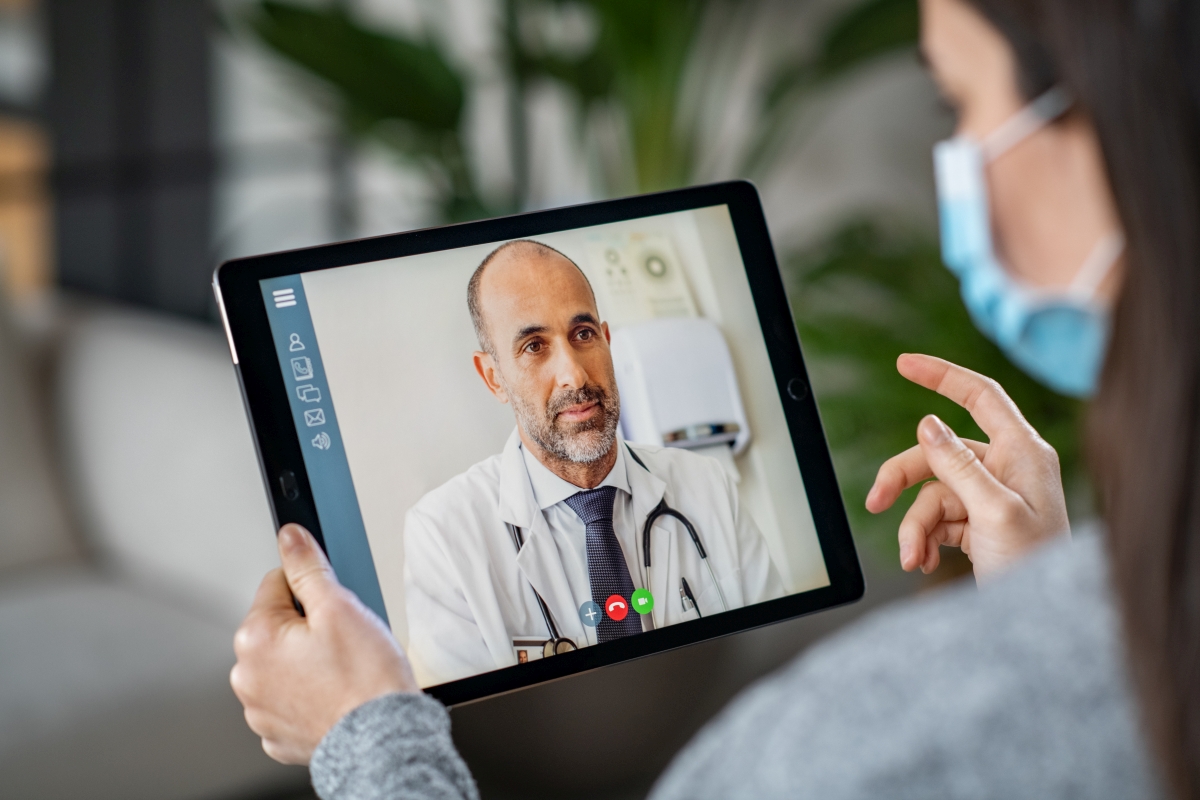Exploring the Perks and Difficulties of Teledoctors in Modern Medical Care
As the medical care landscape advances, teledoctors have actually arised as a critical component in linking voids in clinical accessibility and performance. While they supply the assurance of reaching remote areas and decreasing operational expenses, the trip is not without its difficulties. Privacy issues, the electronic divide, and cybersecurity dangers present substantial obstacles that have to be resolved to harness their full capacity. Just how can the healthcare market balance these benefits with the inherent challenges? This quandary welcomes a deeper exploration right into the transformative duty of teledoctors in shaping the future of health care delivery.
Expanding Accessibility to Treatment
Telemedicine has emerged as a critical advancement in contemporary healthcare, substantially broadening access to take care of diverse populations. By leveraging electronic innovation, teledoctors have changed the standard health care shipment design, making it feasible for clients in remote or underserved areas to receive prompt clinical assessment. This advancement is especially beneficial for individuals living in country areas, where the scarcity of healthcare facilities and experts often results in delayed or insufficient therapy.
Teledoctors are instrumental in connecting the void developed by geographical barriers. Through online examinations, people can access a variety of medical care solutions without the need for extensive travel. This is specifically useful for those with movement concerns or persistent problems requiring frequent medical interest. In addition, telemedicine enhances continuity of care by enabling routine follow-ups and monitoring, consequently improving person results.
The combination of teledoctors into healthcare systems additionally supports the monitoring of public wellness crises by helping with fast reaction and triage. During pandemics, for instance, virtual consultations reduce the burden on physical healthcare facilities, minimizing exposure threats for both patients and doctor. As telemedicine remains to develop, it promises to improve the landscape of healthcare ease of access, making it much more reliable and inclusive.
Cost-Effectiveness of Teledoctors
The cost-effectiveness of teledoctors is a considerable aspect driving their extensive fostering in health care systems. By decreasing the need for physical framework and in-person visits, teledoctors offer an even more economical alternative to typical health care shipment. This model enables medical care suppliers to lower operational prices, such as those related to preserving physical workplaces and using extensive on-site staff. teledoctors. Consequently, these savings can be handed down to clients in the type of decreased consultation costs, making health care much more accessible to a wider populace.
Additionally, teledoctors promote a more efficient use healthcare resources by reducing unnecessary emergency clinic sees and hospital admissions. Patients can access timely consultations for minor conditions or follow-up care, which assists to ease the burden on overstretched health care centers. This efficiency not only leads to cost savings for health care carriers however likewise lowers the financial stress on people who could or else face expensive medical facility expenses.
Moreover, teledoctors can help in handling chronic diseases much more successfully by offering consistent monitoring and timely treatments. This proactive method can avoid issues, thus decreasing long-lasting treatment expenses. In general, teledoctors provide a feasible service to the escalating costs of health care, while keeping top quality treatment delivery.
Enhancing Person Benefit
While cost-effectiveness plays a pivotal duty in the rise of teledoctors, boosting client ease stands as one more engaging advantage of this health care model. With the combination of teledoctors, patients can bypass the commonly time-consuming procedure of scheduling and participating in in-person visits. This version eliminates the demand for travel, reducing time invested en route and waiting areas, consequently providing substantial time cost savings for patients. Specifically for those with mobility concerns or residing in remote locations, teledoctors give a crucial link to healthcare that could otherwise be inaccessible.
Moreover, teledoctors use flexible organizing, permitting clients to set up examinations sometimes that best fit their personal and specialist commitments. This versatility is indispensable for individuals stabilizing demanding job routines or family duties, find more information making sure that health care can be integrated flawlessly into their lives. In addition, the ability to accessibility medical specialists from the convenience of one's home can result in increased person engagement and adherence to treatment strategies, as the obstacles to looking for care are minimized.
The comfort given by teledoctors not just enhances the client experience however likewise adds to a much more receptive and reliable healthcare delivery system, ultimately supporting much better health and wellness end results.
Dealing With Privacy Worries
In the middle of the expanding adoption of teledoctors, privacy issues arise as a substantial factor to consider. As healthcare progressively relies upon digital platforms, ensuring the confidentiality of patient details comes to be paramount. The digitization of clinical documents and using telecommunication innovations require robust safety and security steps to safeguard sensitive information from unapproved accessibility and violations.
Medical care service providers should adhere to stringent regulations, such as the Medical Insurance Transportability and Liability Act (HIPAA) in the USA, which develops national standards for safeguarding medical information. Compliance with such guidelines is vital in preserving person trust fund and guaranteeing their data is handled properly. File encryption of information, protected communication channels, and regular audits are several of the measures that can be implemented to enhance information security.
Cybersecurity hazards are developing, and health care companies must remain alert to brand-new susceptabilities. Additionally, educating both individuals and medical care providers about finest methods in information personal privacy is important.
As teledoctors end up being extra integral to healthcare delivery, resolving privacy concerns is vital to make sure both the efficacy and dependability of these solutions.

Navigating the Digital Divide
Bridging the digital divide is an essential obstacle in the extensive adoption of teledoctors. The benefits of teledoctors-- such as increased accessibility and ease-- continue to be inaccessible for lots of individuals who can most profit from them.
Initiatives to reduce this divide necessitate a multi-faceted approach. Policymakers have to focus on facilities advancement to enhance net accessibility in underserved areas. Additionally, campaigns to fund technology for low-income homes can play a critical duty in making certain fair access. Medical care carriers and area organizations should collaborate to supply electronic literacy programs, encouraging individuals to navigate telehealth systems confidently. Additionally, developing user-friendly user interfaces can additionally improve availability for all demographics, particularly the senior.

Verdict
The assimilation of teledoctors right into contemporary healthcare supplies significant advantages, consisting of raised accessibility to care, cost-effectiveness, and enhanced person benefit. Nonetheless, challenges such as privacy problems, the digital divide, and cybersecurity dangers have to be addressed to make best use of these benefits. By applying durable data security actions, improving electronic proficiency, and ensuring protected technical framework, the potential of teledoctors can be completely understood, advertising equitable health care distribution and changing the healthcare experience for all individuals.

Comments on “Benefits of Using Teledoctors for Remote Medical Consultations”